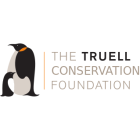news

The Truell Conservation Foundation commits to becoming Net Positive
TCF is committed to being Net Positive.
Net Positive is a new way of operating which puts back more into society, the environment and the global economy than it takes out.
Organisations that take a Net Positive approach share an ambition to grow their brand, have strong financial performance and attract the brightest talent. Spread across the private, public and not-for-profit sectors, they recognise that business is a marathon, not a sprint, along new routes that are still emerging. The destination for each is the same: to become thriving organisations that deliver benefits that extend far beyond traditional organisational boundaries.
Becoming Net Positive requires organisations to be ambitious and plan for long-term success. We have to go beyond risk avoidance and incremental improvements and start to innovate.
Furthermore, the TCF Trustees believe that financially material environmental, social and governance (ESG) factors can have an impact on the long-term performance of its investments, and that the appropriate management of ESG risks and exploitation of ESG opportunities, particularly for a portfolio-wide issue like climate change, can add value to its activities. This requires the consideration of non-financial matters that impact the charity and its stakeholders.
Measurable impacts include:
1. Evidence based impact analysis
2. Constant innovation, and challenge to the established way of being a charity
3. Transparency in reporting
4. Working in partnerships with other great firms and networks
5. Engaging in influencing public policy for public change, even if that is uncomfortable
6. Demonstrating with ‘best practice’ really means; ‘walking the talk’
7. Making a #BIGshift in approach and outcomes, disrupting ‘business as usual’
8. Being uncompromising in not making unacceptable trade-offs
9. Seizing every opportunity to make a positive impacts across the charitable sector
10. Robust environmentally restorative methods

